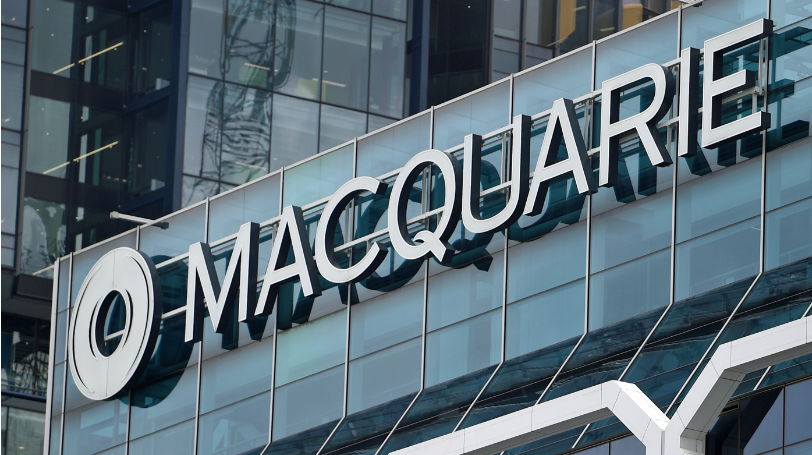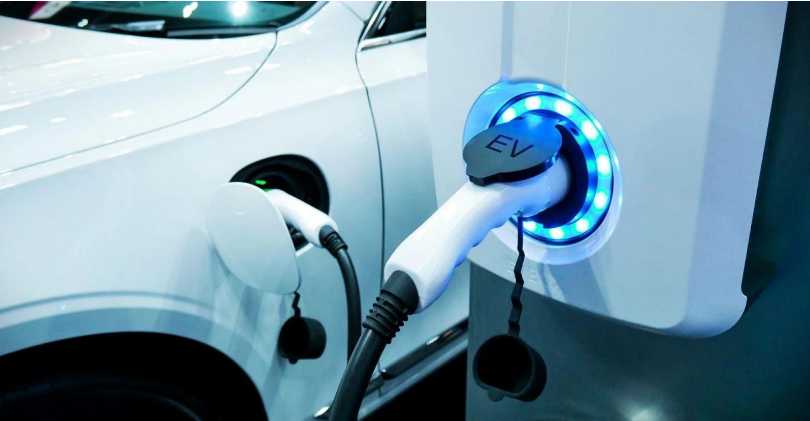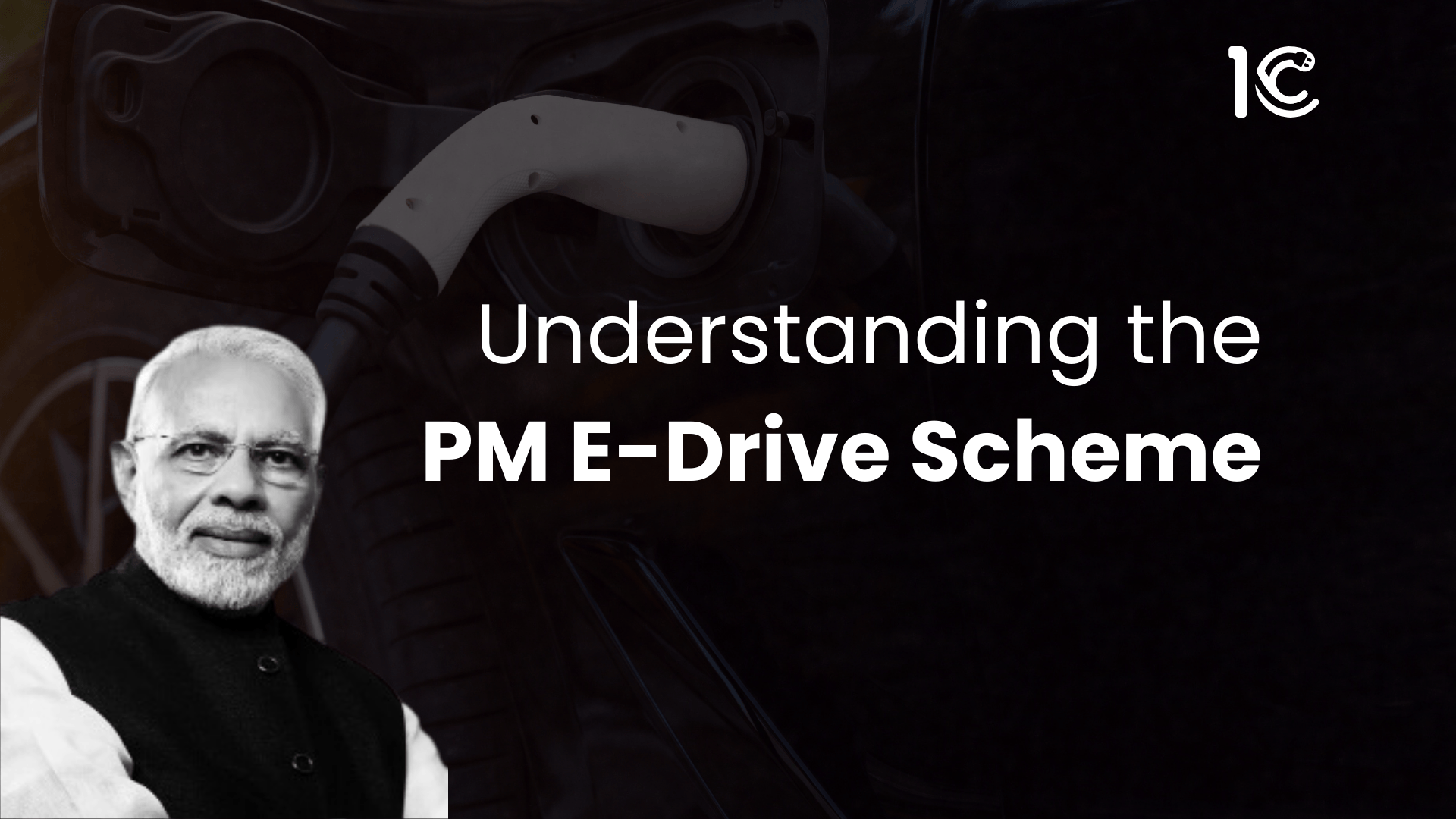Macquarie, an Australian financial institution, aims to participate in India’s credit sector by establishing a non-banking financial company (NBFC) as part of its electric vehicle (EV) platform. The NBFC’s purpose is to offer credit support to businesses operating electric vehicle fleets, aligning with India’s EV objectives. Macquarie intends to seek approval from the Reserve Bank of India (RBI) for this initiative, with preliminary discussions already underway.
Macquarie has chequed a substantial $400 million investment for its comprehensive EV platform, encompassing leasing, electrification, and heavy transportation services. Over the next seven to eight years, Macquarie aspires to build a financial portfolio ranging between $1.2-2 billion for the NBFC.
Macquarie has been actively engaged in India, making significant investments and strategic decisions. This includes the recent appointment of Sandeep Gambhir to lead the NBFC. India has set an ambitious target of electrifying 30% of its vehicle fleet by 2030, presenting a substantial opportunity. Macquarie’s strategic plan aligns with the prevailing industry trend, particularly the emphasis on electric buses. The government’s initiative to deploy 50,000 electric buses in the next four to five years further supports the alignment of Macquarie’s goals with the evolving landscape in India’s transportation sector.
Overview of Mcquarie’s Strategic Initiative in India
Aspect | Details |
Macquarie’s Objective | Participation in India’s credit sector through the establishment of an NBFC as part of its EV platform. |
NBFC Purpose | Offering credit support to businesses with electric vehicle fleets, aligning with India’s EV goals. |
RBI Approval Process | Macquarie is in talks with the RBI and plans to submit a formal application for NBFC licensing in the last quarter of the current financial year. |
EV Investment Allocation | A substantial investment of $400 million for a comprehensive EV platform covering leasing, electrification, and heavy transportation. |
NBFC Growth Plans | Aspires to build a financial portfolio of $1.2-2 billion for the NBFC over the next seven to eight years. |
Leadership in NBFC | Sandeep Gambhir, former CEO of Orix India, leads the NBFC, actively building a team to achieve its goals. |
India’s EV Targets | The government aims for 30% electrification of the vehicle fleet by 2030, with plans to deploy 50,000 electric vehicles in the next four to five years. |
Market Outlook | Anticipated adoption rates for light trucks and buses, with a focus on encouraging environmentally friendly transportation. |
Macquarie Asset Management Activity | Involvement in selling 450 megawatts of solar power projects, reflecting diverse financial transactions and commitment to renewable energy. |
Financial Transaction Focus | Abhishek Poddar oversees financial activities, demonstrating Macquarie’s engagement in various sectors and its broader investment strategy in India. |
Who is Macquarie?

Macquarie is a financial institution based in Australia, operating in various sectors, including banking, financial services, and asset management. As of March 31, 2023, the company had total assets exceeding $250 billion. Macquarie has shown interest in the Indian market by investing through its balance sheet, Asia fund, and specific funds dedicated to India. The company is known for its diverse investments, from roads to digital and power infrastructure in India. Recently, Macquarie announced plans to enter India’s credit sector by establishing a non-banking financial company (NBFC) as part of its electric vehicle (EV) platform, aiming to support India’s EV ambitions.
Macquarie's Entry into India's Credit Sector
Macquarie is broadening its presence in India’s credit sector with an aim to fill the gap in India’s EV future by offering specialised credit solutions to industrial fleet operators through the newly established NBFC.
Non-Banking Financial Company (NBFC)
- As part of its broader entry into the electric vehicle sector in India, Macquarie is in the process of establishing a Non-Banking Financial Company (NBFC).
- The primary focus of the NBFC is to provide credit solutions made for commercial fleet operators.

- Macquarie plans to apply for a license from the Reserve Bank of India to facilitate the provision of these financial services.
- The formal application is expected to be submitted in the last quarter of the current financial year.
Licensing Process for Macquarie’s NBFC in India
- Macquarie is working on getting a license from the Reserve Bank of India to set up and run its NBFC in India.
- This process involves official steps and approvals from the RBI, which is the main banking authority in India.
- They plan to formally submit the license application in the last part of the current financial year after having informal discussions with the regulatory authorities.
- After submitting the application, the RBI carefully looks at it to make sure it follows all the rules and standards.
- The RBI examines different parts of the proposed NBFC, including how it plans to do business, its financial stability, and whether it follows the rules.

- If everything goes well and they complete this licensing process successfully, Macquarie’s NBFC will be allowed to work legally in India. They can then provide financial services specifically designed for businesses with electric vehicle fleets.
- This licensing process is an important step for Macquarie to help India with its electric vehicle goals by offering credit solutions to meet the financial needs of businesses with industrial fleets.
Macquarie's Investment and Objectives in EV Sector
1. Financial Allocation: Macquarie has earmarked a substantial $400 million investment for its comprehensive Electric Vehicle (EV) platform.
2. Comprehensive EV Platform: The investment encompasses a range of services within the EV sector, including fleet leasing, electrification, and heavy transportation.
3. NBFC Growth Plans: With a forward-looking perspective, Macquarie aims to build a substantial $1.2-2 billion book for the Non-Banking Financial Company (NBFC) over the next seven to eight years.
4. Strategic Focus: This financial commitment reflects Macquarie’s strategic focus on addressing the evolving needs of the EV sector in India.
5. Holistic Approach: The investment underscores Macquarie’s commitment to offering end-to-end solutions, covering various aspects from fleet management to electrification services and heavy transportation.
6. Long-Term Vision: Macquarie’s ambitious investment and growth plans indicate a long-term commitment to contributing to the development and expansion of the EV sector in India.
Macquarie's Involvement and Leadership
Macquarie is actively involved in various investments in India, using its money and special funds for the country.
Leadership in the NBFC
- A skilled professional, Sandeep Gambhir, who used to be the CEO of Orix India, was chosen to lead Macquarie’s new Non-Banking Financial Company (NBFC).
- Gambhir is building a team to help the NBFC achieve its goals.
- Macquarie’s participation and leadership efforts match its big plans in the Indian financial world, adding to its overall presence and influence in the area.
India's EV Targets and Market Outlook
1. Government’s EV Targets: The Indian government has set ambitious targets to achieve a 30% electrification of the country’s vehicle fleet by the year 2030.
2. Market Outlook: The government plans to put around 50,000 electric vehicles on the road in the next four to five years.

3. Adoption Rates: Among commercial vehicles, adoption rates for light trucks and buses are projected to be 20-25% and 15-20%, respectively, by 2030, as indicated by a report from Bain & Co.
4. Opportunities and Challenges:
- The EV market presents significant opportunities, particularly with the government’s push to electrify public transportation.
- Despite the current low demand for electric buses, the market is expected to gain momentum, reaching a 16% penetration rate by 2027.
5. Influence on Macquarie’s Initiatives: These developments in India’s EV landscape contribute to the broader context in which Macquarie aims to establish its Non-Banking Financial Company (NBFC) to support industrial fleet operators in the EV sector.
Additional Macquarie Asset Management Activity
Solar Power Project Sale:
- Macquarie Asset Management is a part of Macquarie that has appointed Bank of America to sell around 450 megawatts of solar power projects.
- The value of this sale is around $250 million.
Personnel in Charge:
- Abhishek Poddar oversees Macquarie Asset Management’s activities in India.
- The company is actively engaged in diverse investments, including solar power projects, reflecting its ongoing commitment to various sectors.
Focus on Financial Transactions:
- Macquarie Asset Management’s involvement in selling solar power projects aligns with its financial activities in the renewable energy sector.
- This demonstrates the company’s role in diverse financial transactions, contributing to its broader investment strategy in India.
Conclusion
Macquarie’s moves in India’s financial world show they’re serious about helping with changing needs, especially in electric vehicles. Creating a Non-Banking Financial Company (NBFC) fits with India’s goal of making 30% of vehicles electric by 2030. Macquarie is investing a lot and planning for big growth, showing they want to be part of India’s long-term success. Their involvement in different areas, like selling solar projects, also shows they’re actively doing various financial activities, making them more influential in India.
Read Articles >>>
Understand the evolution of transport from horse carts to electric vehicles and explore how EVs are driving us toward a greener future!
Key considerations for successful EV charging infrastructure planning: site selection, utility integration, installation, and operational efficiency.
An authoritative guide to bust the most common myths about electric vehicles, making it easier to understand the real benefits of EVs.
Understand the powerful synergy between renewable energy and EV charging stations, shaping a cleaner and more sustainable future. Read on to learn more.
Can EVs really save the planet? Learn more about the environmental benefits and challenges of EVs, and how they fit into a larger sustainability strategy.
The PM E-Drive Scheme is a major step for driving the growth of EVs in India. Learn more about how it will impact the EV industry, businesses & consumers.


















